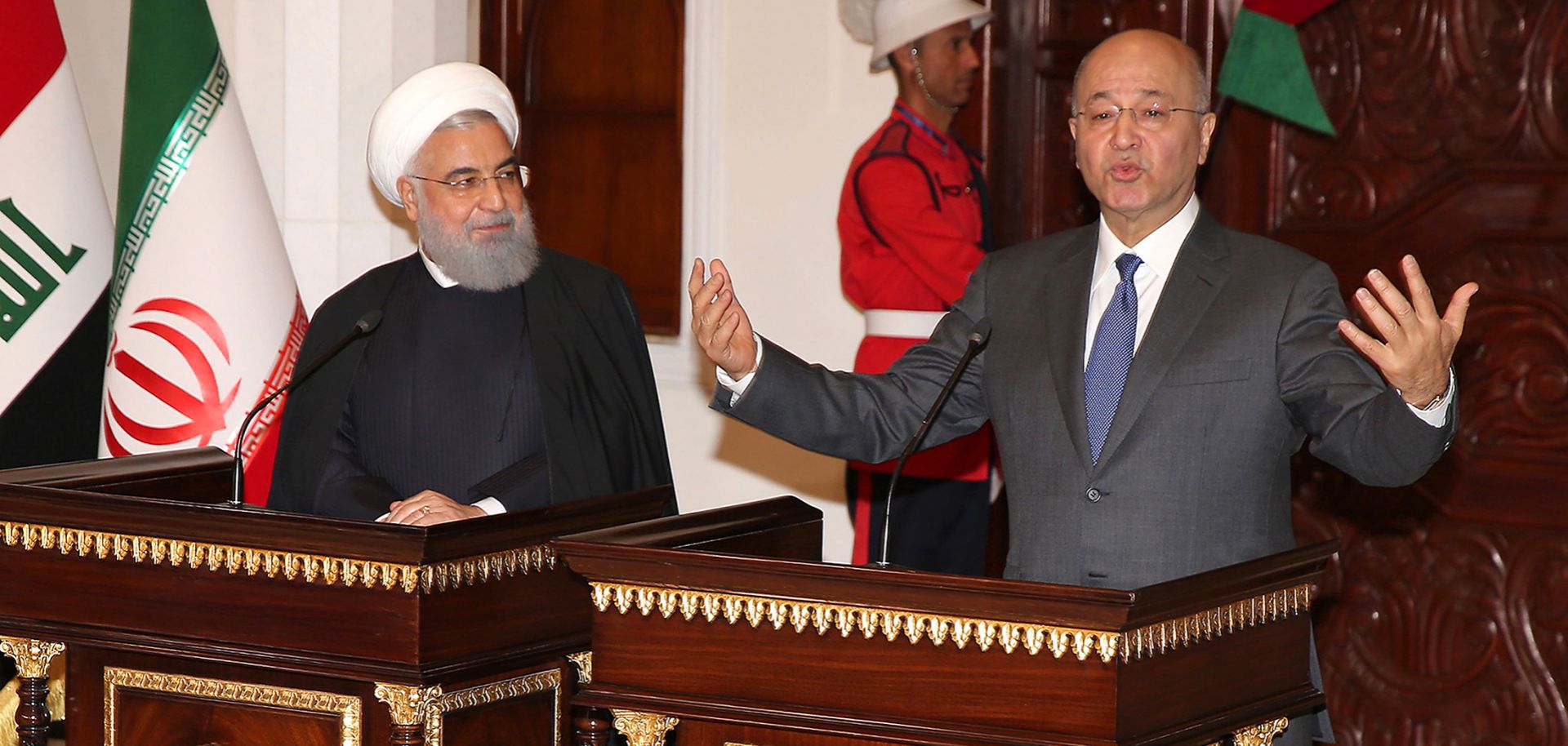ASSESSMENTS
What Iraq Has to Gain, and Lose, by Resurrecting a Border Deal With Iran
Apr 5, 2019 | 18:41 GMT

Iranian President Hassan Rouhani, left, took his first-ever official state trip to Iraq in March, meeting with Iraqi President Barham Salih and other Iraqi leaders. Meanwhile, Baghdad faces increased pressure from Washington to limit its ties with Tehran.
(SABAH ARAR/AFP/Getty Images)
Highlights
- Iraq's recent agreement to share the Shatt al-Arab waterway with Iran stands as a testament to the new level of political closeness between the historically hostile neighbors.
- But in addition to the diplomatic symbolism, Iraq knows it needs Iran's help to develop and clean the river and, in turn, help mitigate the blowback from its water crisis and ongoing unrest in Basra.
- However, by deepening ties with its controversial neighbor, Baghdad risks further complicating its delicate relations with Iran's regional and Western enemies.
Subscribe Now
SubscribeAlready have an account?
